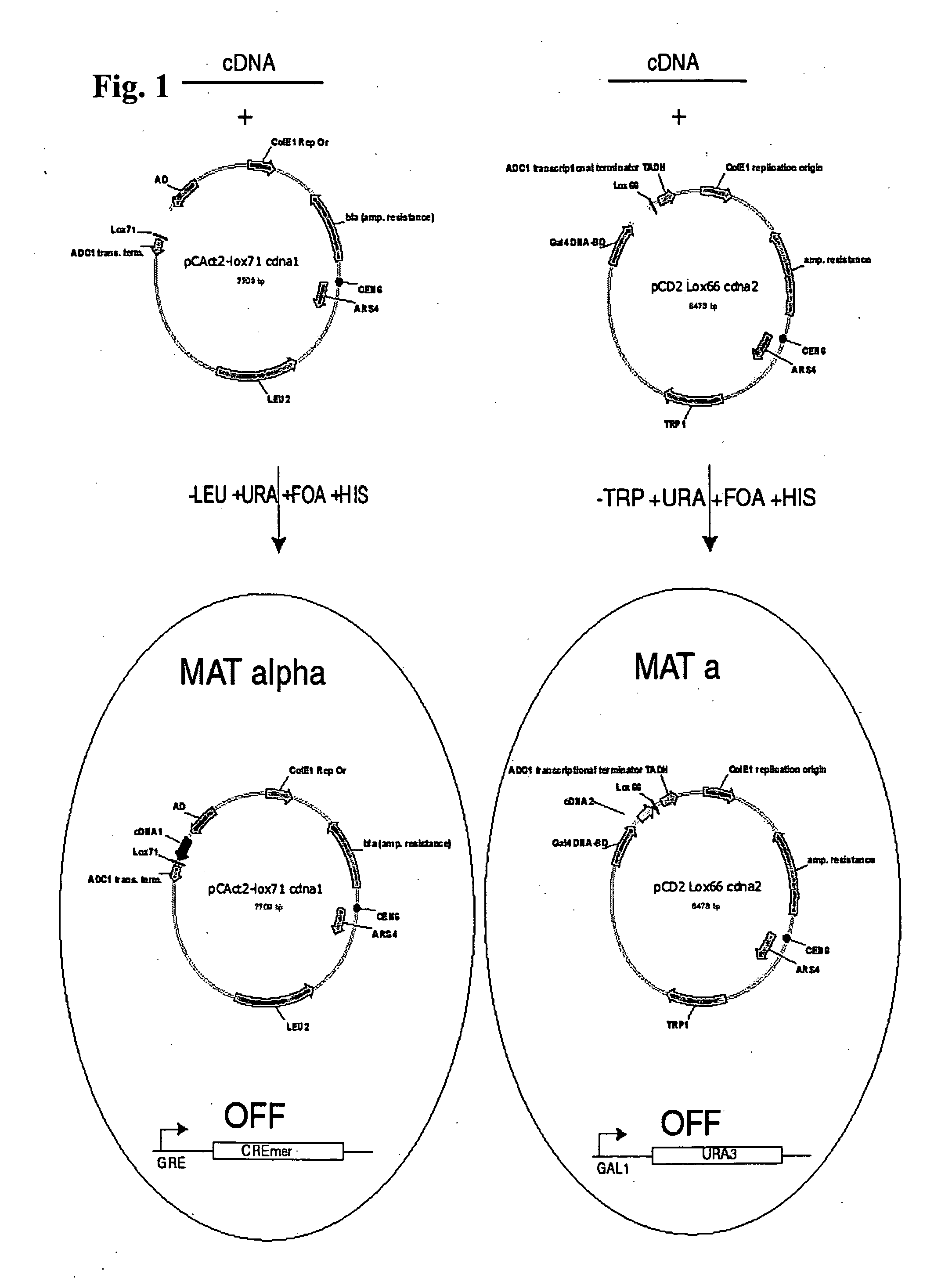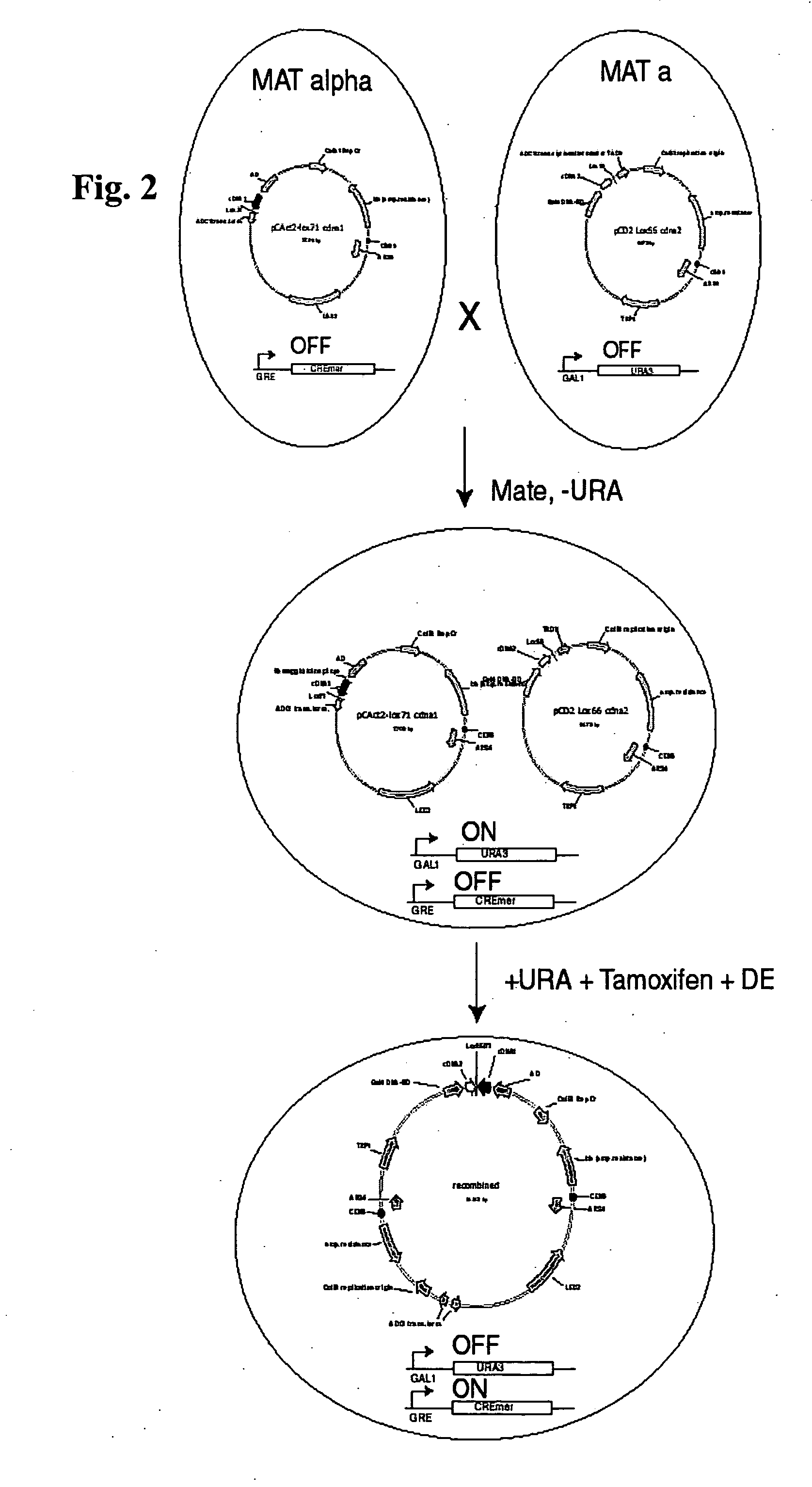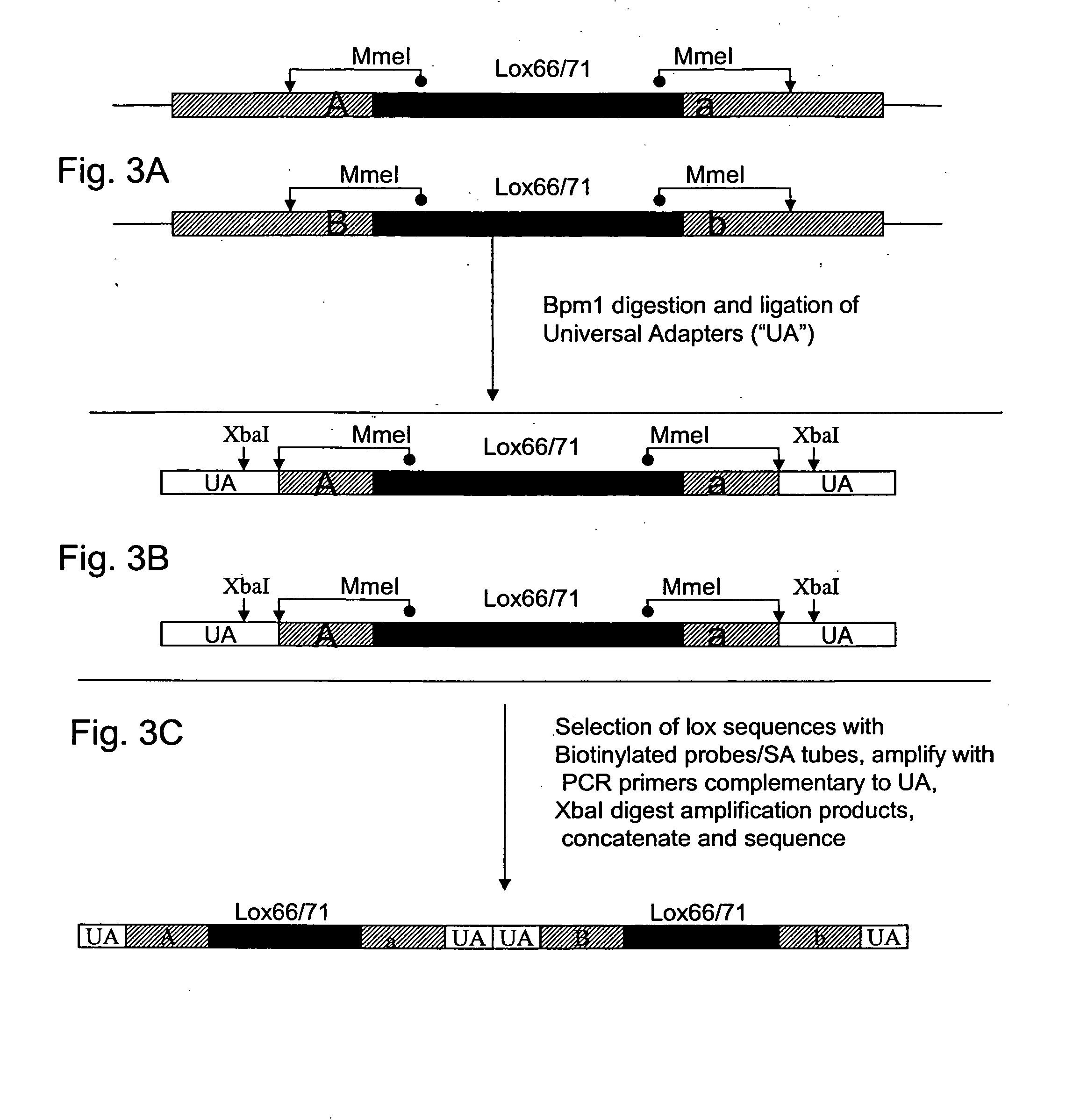Methods for protein interaction determination
a protein interaction and determination method technology, applied in the field of protein interactions, can solve the problems of inability to apply this technology to the genome of mammals, which is on the order of 10 times more complex, and is currently not feasibl
- Summary
- Abstract
- Description
- Claims
- Application Information
AI Technical Summary
Benefits of technology
Problems solved by technology
Method used
Image
Examples
example 1
[0066] This embodiment demonstrates the construction of a pair of plasmids useful for practicing the present invention in yeast. In this embodiment, the starting point for construction of the AD and DBD vectors were pCAct2 (AD vector) and pCD2 (DBD vector), which were obtained through the American Type Culture Collection (ATCC). These vectors are low copy number and contain CEN6 sequence elements. In this embodiment, two modifications to these vectors were made to prepare them for Cre mediated recombination to physically link the cDNAs they carry.
[0067] First, a region of pCAct2 carrying the ADC1 promoter, AD, site of cDNA insertion and transcription termination site is inverted relative to the remaining vector sequences. This is required to allow resolution of recombined plasmids in the final step of the selection as will be described more fully below. Second, lox sequences are inserted in both pCAct2 and pCD2. In this embodiment, pCAct2 received the half site mutant lox71 and pCD...
example 2
[0069] This Example discloses one embodiment for the synthesis and incorporation of cDNAs into the AD and DBD plasmids described above by co-transfection of cDNAs containing the SMARTIII and CDSIII sequences with the AD and DBD plasmids.
[0070] Outlined in FIG. 4 is the ClonTech® pGADT7-Rec vector and cloning strategy used in one embodiment of the invention. cDNAs were prepared containing termini that are homologous to the vector's insertion site and the yeast were transformed with linearized vector in combination with the cDNAs. Subsequent recombination at the homologous sequences generated the desired fusions and the re-circularization of the vector allows growth in yeast. This approach allows insertion of the BpmI, or MmeI, site needed subsequently for MAGE (as explained below) and requires only that the 3′ oligo sequence (equivalent to CDS III oligo shown in FIG. 4) is modified to include the BpmI, or MmeI, recognition sequences adjacent to the cDNA. The vector's homologous sequ...
example 3
[0077] This example describes yeast cells having an endogenous CreMer gene for use with the present invention. The starting strains used for generating the CreMer expressing yeast strain were YD116 and YD119. These strains are both (ura3-52 his3-200 leu2- trp1-901 can(R) gal4delta512 gal80delta338 lys2-801::UAS(G)-HIS3-lacZ ade2-101::GAL1-URA3) where YD116 is MAT-alpha and YD119 is MAT-a. To modify them for inducible Cre expression a tamoxifen inducible Cre variant (CreMer; Zhang et al., 1996) was inserted under the control of DEX inducible glucocorticoid response elements (Picard et al., 1990). This was accomplished by PCR based gene targeting using the pFA6a-kanMX6 module (Bahler et al., 1998) and selection in G418. Correct integration was confirmed by PCR. The glucocorticoid response elements allowed induction to high levels on treatment with DEX but show very low basal levels of expression in its absence. Additionally the CreMer variant of Cre requires the presence of tamoxifen ...
PUM
| Property | Measurement | Unit |
|---|---|---|
| resistance | aaaaa | aaaaa |
| size | aaaaa | aaaaa |
| time | aaaaa | aaaaa |
Abstract
Description
Claims
Application Information
 Login to View More
Login to View More - R&D
- Intellectual Property
- Life Sciences
- Materials
- Tech Scout
- Unparalleled Data Quality
- Higher Quality Content
- 60% Fewer Hallucinations
Browse by: Latest US Patents, China's latest patents, Technical Efficacy Thesaurus, Application Domain, Technology Topic, Popular Technical Reports.
© 2025 PatSnap. All rights reserved.Legal|Privacy policy|Modern Slavery Act Transparency Statement|Sitemap|About US| Contact US: help@patsnap.com



